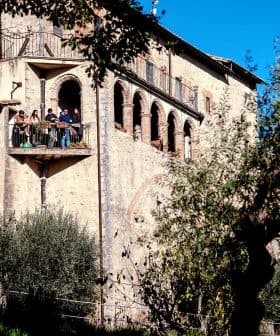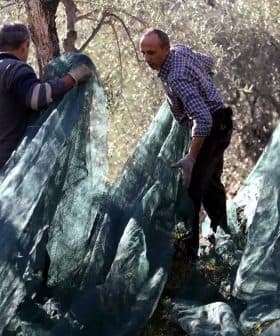Kalamata PDO Expands to All of Messinia
The European Commission approved the extension of the Kalamata olive oil Protected Designation of Origin to cover the entire Regional Unit of Messinia in Greece, despite objections from the United Kingdom and companies in Switzerland, Norway, and Egypt. The expansion of the PDO will allow for an annual critical mass of about 50,000 tonnes of olive oil, with some concerns raised about maintaining quality standards and avoiding price depression in the market.
On July 13, the European Commission approved the extension of the Kalamata olive oil Protected Designation of Origin throughout the Regional Unit of Messinia in the southwestern Peloponnese in Greece, considerably enlarging the area covered by the PDO. In his press release, Evangelos Apostolou, the Deputy Minister in the Greek Ministry for Production Reconstruction, Environment and Energy, proclaimed “a happy ending to a long-term effort for the benefit of producers of the entire Regional Unity of Messinia” in spite of “obstacles and especially the objections submitted in 2013 by the United Kingdom and companies based in Switzerland, Norway and Egypt.”
The Deputy Minister’s press release indicates that the application for an amendment from the Union of Agricultural Cooperatives of Messinia was approved because it was determined “that the olive oils produced in the region of Messinia have the same organoleptic and chemical characteristics as those produced in the area of Kalamata,” which is located in the region of Messinia. Deputy Minister Apostolou praised the decision, adding that high-qualityagriculture and certified products are essential if the Greek rural economy is to benefit from exports.
According to the European Commission, a Protected Designation of Origin or PDO “covers agricultural products and foodstuffs which are produced, processed and prepared in a given geographical area using recognised know-how.” The new PDO introduces more stringent qualitative criteria than those laid down in Regulation 2568/1991 for extra virgin olive oil, a development Gaea CEO Aris Kefalogiannis told the Olive Oil Times he considers the most important aspect of this decision — although he would have preferred even stricter criteria. Gaea has been working with an olive press in the narrower region of Kalamata and will continue to do so, but Kefalogiannis welcomes the opportunity to use olives from the extended region when bad crop years make that necessary.
Kostas Kontothanasis wrote recently in Olive News that the expansion of the Kalamata PDO will lead to an “annual critical mass of about 50,000 tonnes” of olive oil, giving this PDO a “robust commercial presence.” In May 2013, Olive News reported that the vice governor of the regional unit of Messinia, Panagiotis Alevras, claimed that the expanded Kalamata PDO would “be the largest olive oil PDO worldwide.” Both Alevras and Kontothanasis stressed the importance of quality, with the former mentioning the need for “packaging, standardization, [and] export activity … within the area” and the latter urging the use of olives from within the official PDO, their pressing within 24 hours, and avoidance of plastic bags. Kontothanasis is confident that “the passion of Messinia producers” will result in high-qualityoils, arguing “that is why, holding the world’s reins of standardization and markets, Italians prefer this oil.”
Publishing an enthusiastic press release from the Producer Group NILEAS, Olive News indicated that cooperatives were in favor of the expansion, but Jenny Gyftea of AGROVIM SA “expressed fears that the sharp expansion of the current 5,000 tonne PDO to about 40,000 tonnes tomorrow will hardly be controlled for their quality, and the increase in supply will depress the prices that are currently enjoyed by the olive grower, and will open the door for standardization of Kalamata PDO [olive oils] by foreign (Italian) industries.”
Last November, Olive News reported that the member of parliament representing Messinia, Thanasis Petrakos, met with the Minister of Agriculture to ask him to personally inform European Commission officials that the Greek state required a resolution of the Kalamata olive oil PDO expansion question, which had been delayed for more than 10 years due to opposition from unnamed “private bodies” as well as complaints from several countries. This led to a request for, and the provision of, additional information from Greece. Petrakos emphasized that “if the safeguarding of the Kalamata olive oil PDO proceeded, it would offer farmers an added value and would help to improve the economy of the whole prefecture. One of the reasons that this matter does not proceed is that it is hindered by Greek and foreign interests that want the Greek oil to be exported without identity” (that is, in bulk, rather than being bottled and branded in Greece).
- Geographical indications and traditional specialities
- Greek Ministry for Production Reconstruction, Environment and Energy press release: extension of Kalamata olive oil PDO throughout the region of Messinia approved (Το Υπουργείο Γραφείο Τύπου Δελτία Τύπου Εγκρίθηκε η επέκταση του ελαιολάδου ΠΟΠ «ΚΑΛΑΜΑΤΑ» σε όλη την περιοχή της Μεσσηνίας, in Greek)
- The PDO KALAMATA Expands (update) (Επεκτείνεται το ΠΟΠ ΚΑΛΑΜΑΤΑ [upd], in Greek)
- “Shhh! Do Not Disturb now the olive oil PDO folder” («Σσσς! Μην ενοχλείτε τώρα το φάκελο ΠΟΠ ελαιολάδου», in Greek)
- Intervention of T. Petrakos for the Kalamata PDO (Παρέμβαση Θ. Πετράκου για ΠΟΠ Καλαμάτας, in Greek)






